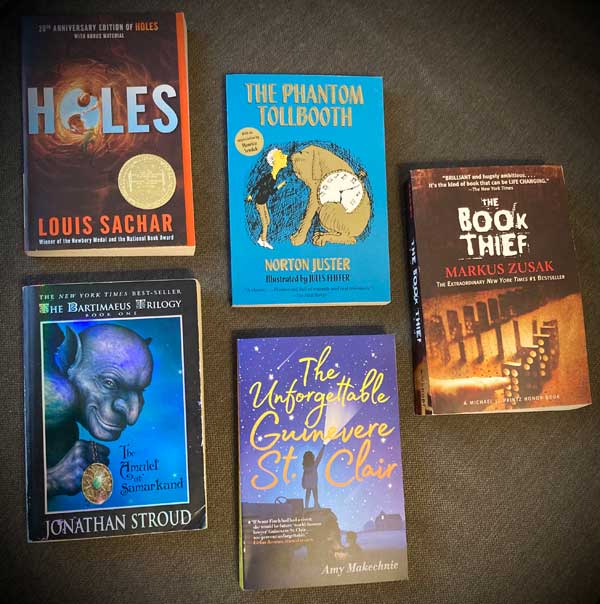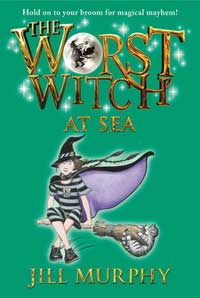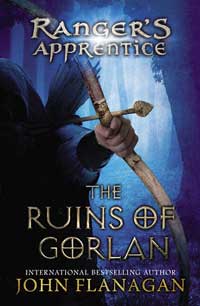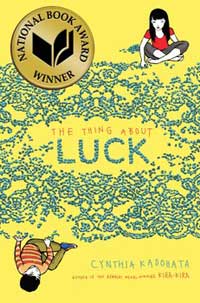Our Toronto silent book club member Sundus Butt offers another splendid collection of young adult (YA) titles, accompanied by well-attuned and insightful reviews. For now, this is her final installment, but I hope we can convince to return in future with more! Here are all Sundus’ recommendations collected together for your enjoyment and edification.

 The Worst Witch by Jill Murphy (6–9)
The Worst Witch by Jill Murphy (6–9)
Whoever heard of a witch who was scared of the dark?
In England, before Harry and Hogwarts, there were Mildred and Miss Cackle’s Academy for Witches. Mildred Hubble is an awful witch. She can’t perform spells properly, ride a broomstick, or even keep her shoes tied, and is just generally a disaster. But armed with her best friend, Maud, and her odd kitten, Tabby, Mildred tries to make it through her first year at the academy.
I adored this book as a child. It’s a short and delightful read about a girl who doesn’t fit in and pretty much rubs everyone the wrong way. But there’s a charm to Mildred (and the story as a whole) and it’s immensely satisfying when she saves the day, with all her flaws in tow.
 The Ruins of Gorlan by John Flanagan (9–12)
The Ruins of Gorlan by John Flanagan (9–12)
Will became aware of the comforting realization that he was now a part of an exclusive, tightly knit group.
It was a warm sense of belonging, as if, somehow, he had arrived home for the first time in his life.
Will has always been a bit different, even for an orphan raised at Redmont Fief. And when Choosing Day arrives and no one selects him as an apprentice, Will’s heart sinks. But then the mysterious old ranger Halt selects him at the last minute and Will falls headlong into a new and strange life.
With an enjoyable cast of characters, witty dialogue, and some familiar fantastical elements, this is just a really fun, medieval-feeling read.
 The Thing About Luck by Cynthia Kadohata (10–14)
The Thing About Luck by Cynthia Kadohata (10–14)
My friends all felt like life would go on forever, but I realized it was something happening now. And yet I didn’t know what to make of it. “It’s because your personality hasn’t settled yet,” my mother liked to say, as if my personality was dust floating in water.
Summer’s family has had a torrid string of bad luck from Summer contracting malaria to her brother’s only friend moving away to her parents leaving for a family emergency in Japan. So it’s just Summer, her grandparents, and little brother, Jaz, who are left to help out for the harvest season.
The highlight of the story is the relationship between Summer and her grandmother. Their back-and-forth banter feels like a real reflection of two people from different generations and cultures, and their dramatic natures make their encounters amusing. The characters are the heart of this simple story, which is a snapshot of a season in Summer’s life as she navigates growing up and dealing with the trials and joys that entails.
Holes by Louis Sachar (11–13)
A lot of people don’t believe in curses.
A lot of people don’t believe in yellow-spotted lizards either, but if one bites you, it doesn’t make a difference whether you believe in it or not.
Unjustly sent to a boys’ detention camp, Stanley Yelnats is forced to dig a large hole every day in excruciating heat at Camp Green Lake, which has no lake, greenery, and is the farthest thing from camp. But Stanley soon learns there’s more behind digging the holes than “building character.”
With some excellently crafted characters and weaving of the past and present, Sachar creates a story that unfolds so well and doesn’t feel too heavy amidst the truly terrible conditions (environmental and human-made) of the camp. And it’s these conditions that make Stanley’s growth even more extraordinary. He learns to uncover and choose courage, compassion, and strength when faced with difficult situations.
The Unforgettable Guinevere St. Clair by Amy Makechnie (9–12)
This woman was holding a dead body and walking off into a cornfield — and I was letting her. Could it be … a crime? The thought was both terrible and thrilling. I was only ten and about to become an Accessory. Was it possible to be disbarred before I even got into law school?
After a heart episode, Guinevere’s (Gwyn’s) mother is oxygen-deprived for so long that she loses all her memories past the age of 13. But even worse, she acts like she’s a child, too. Gwyn’s dad decides moving back to their hometown in Iowa will help restore his wife’s memory and in turn heal the breach in their family. Skeptical of the outcome, Gwyn takes her little sister, Bitty, in hand and makes the best of a terrible situation by befriending some offbeat boys, making a longed-for archenemy, and realizing people aren’t always what they seem.
This is one of my favourite books. It has a terrific opening line and sets the tone for the wonder that is Gwyn. Her narration of this heartwarming (and wrenching) story is poignant and funny. And even though this is set in modern times, it feels like an olden setting, which adds to the charm and fits the story perfectly. The title is correct; once you’ve met Guinevere St. Clair, you won’t soon forget her.
Refugee by Alan Gratz (9+)
[…] A building shuddered and collapsed, smoke and debris avalanching out into the street. Mahmoud jumped when it fell, but Waleed stood still, like this kind of thing happened every day.
With a jolt of surprise, Mahmoud realized this kind of thing did happen every day. Just not to them. Until now.
This book follows three child refugees and their families as they leave their homes to find a new place to live: Josef flees Nazi Germany in 1938, Isabel flees Cuba in 1994, and Mahmoud flees Syria in 2015.
Tragically, fear and mistreatment of refugees is a long tradition, highlighted by the similarities in the children’s journeys in three different decades. As expected, this is a heavy, unvarnished look at the incomprehensible situations some people must go through to find a safe place to live. Though written at a young reading level, I think the content skews this book a little higher. And whilst it’s bleak, it does show the tenacity and determination of the human spirit, and some unexpected connections tie these three separate stories together towards the end.
The Phantom Tollbooth by Norton Juster, illustrated by Jules Feiffer (9–11)
“[…] as you’ve discovered, so many things are possible just as long as you don’t know they’re impossible.”
Meet Milo. He’s bored with everything in his life and feels like nothing matters. But one day, he receives a mysterious package that he builds into a tollbooth. The tollbooth sends him off into another world where he never knows what to expect from one moment to the next.
It’s hard to describe the enjoyable chaos that is The Phantom Tollbooth. Juster cleverly pieces together the Kingdom of Wisdom with playful puns, descriptions, and a cast of characters who I think would fit right in in Wonderland. As Milo journeys from Expectations to the Doldrums to Dictionopolis and beyond, he realizes the importance of words and that there is so much more to his own world if he takes the time to look a little closer.
The Amulet of Samarkand by Jonathan Stroud (11+)
One magician demanded I show him an image of the love of his live. I rustled up a mirror.
Nathaniel, a young wizard-in-training, summons ancient djinni Bartimeaus and commands him to steal an amulet from a powerful wizard. This theft kicks off a series of events that embroils them both in a dangerous conspiracy set in a dystopian, alternate version of England.
If you don’t already have a favourite djinni, Bartimeaus will fill that space. Funny, troublesome, irreverent, he’s a marvellous character. Split between his perspective and Nathaniel’s, you’re taken through a rollercoaster of magical and chaotic events in a world different yet familiar. With actual footnotes that genuinely enrich the running story, Stroud creates a slightly dark, but unique fantasy tale.
The Book Thief by Markus Zusak (12+)
The human heart is a line, whereas my own is a circle, and I have the endless ability to be in the right place at the right time. The consequence of this is that I’m always finding humans at their best and worst. I see their ugly and their beauty, and I wonder how the same thing can be both.
This extraordinary book follows Liesel Meminger as she comes of age in Nazi Germany. After losing her family, Liesel is fostered by Hans and Rosa Hubermann. One day, a Jewish man arrives at their door, and the Hubermann’s make the brave and dangerous decision to hide him. Liesel’s new family must now pretend nothing has changed when everything has changed in a world tipped into a brutal war.
This is such a beautifully written book. Zusak’s descriptions combined with death as the narrator mark this as a special story right from the start. And in Liesel, you have a broken-hearted, but fierce character who finds small and big ways to defy Nazi authority. Her burgeoning love for language and books is something that resonates with readers and is celebrated. There are lots of stories set in Nazi Germany, but this is one of the very best, with characters that will stay with you long after the story has ended.
